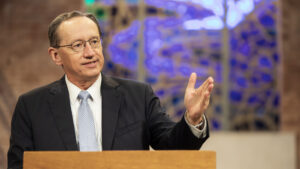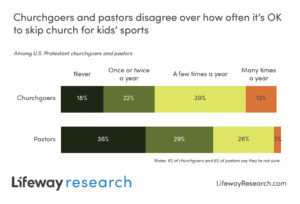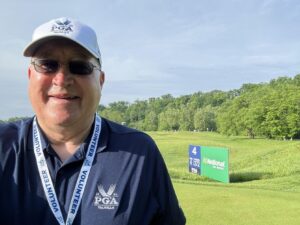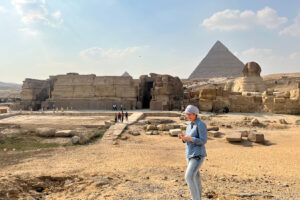
KANSAS CITY, Mo. (BP)–A new 1,500-seat assembly hall for Midwestern Baptist Theological Seminary will serve as phase one of a campus plan approved earlier by trustees. The multipurpose building emerged as the priority item during discussion at the Oct. 19-20 board meeting in Kansas City, Mo.
“With an assembly hall, we would no longer need to go off campus for graduation or to erect a circus tent, as we did both for my inauguration and for SBC President Tom Elliff’s day of prayer for spiritual awakening,” Midwestern Seminary President Mark Coppenger told trustees prior to the meeting.
Expected to cost $3 million to construct, the capital campaign will be conducted by Bill Foil, newly hired by Midwestern to inform, cultivate and motivate donors for the project. Unrestricted funds and foundation sources also will be tapped, with groundbreaking expected next year.
An earlier commitment to construct a family center will be realized as the assembly hall is converted for use as a recreational, fitness and fellowship hall.
The motion presented by trustee R. E. Clark of Lake Charles, La., stipulated that any alternative funding which becomes available for another phase of the campus plan will allow that item to be prioritized.
Board chairman Bob Lilly of Baltimore, Md., described the project as “a God-sized thing.” Encouraging inclusion of a season of prayer during the trustee agenda, Lilly said, “The only way it’s going to be done is by getting on our face and praying about it.”
In a meeting characterized by unanimous decisions on every vote, trustees approved a new professor and heard of the removal of a notation to the seminary’s accreditation report from the Association of Theological Schools. Routine reports from all areas of seminary operations were provided throughout the meeting.
Terry L. Wilder received approval for a five-year term as assistant professor of New Testament and Greek, having completed his doctor of philosophy degree from the University of Aberdeen in July. He has served a year as a visiting professor. Wilder, 41, is an Ohio native with teaching experience at three Texas institutions: Southwestern Baptist Theological Seminary, Fort Worth; Criswell College, Dallas; and Dallas Baptist University.
Academic Affairs Vice President Jim Cogdill noted Wilder’s “open and vocal support of the moral and ethical concerns of the conservative resurgence,” praising his participation in an area panel where Wilder opposed homosexuality from a scriptural perspective. Wilder responded to a range of questions involving redaction criticism, millennial perspective and Bible translation.
Cogdill also reported to trustees that the Association of Theological Schools has removed a notation on the inadequacy of the duration of the master of divinity correlated degree. Progress was reported on a notation involving financial planning. With both of those concerns addressed, Cogdill said ATS is awaiting a report from the seminary to evaluate the successful implementation of a new curriculum.
“Unless something unexpected happens, by this time next year we will be free from any notations from our accreditors,” Cogdill concluded.
Trustees approved revisions to the faculty and trustee handbooks intended to establish consistency in seminary operations. The documents more specifically addressed sabbatical and promotion policies, added the new family article of the Baptist Faith and Message confessional statement of the Southern Baptist Convention and replaced what Cogdill termed “neo-orthodox theology” in the section describing Southern Baptist seminary education background and language. More precise language refers to the revelation of God through “His perfect inerrant, infallible Word, the Bible.”
Recommendations generated out of the Oct. 19 executive committee meeting were approved unanimously, including the prioritizing of construction of the assembly hall, as well as:
— increasing the seminary president’s base salary 15 percent and granting of a $5,000 bonus intended for vacation expenses, effective Nov. 1 of this year;
— designating the executive committee as having responsibility for reviewing the president’s base salary on a yearly basis and making recommendations to the board prior to the annual budgeting process until further bylaw revisions stipulate the assignment to another board entity; and
— recommending Christmas bonuses be given to seminary personnel.
At the next meeting, trustees anticipate completion of a report assessing faculty salaries, benefits and responsibilities in comparison to other SBC seminaries.
A preliminary report updating trustees on plans to better display the Morton Collection of archaeological artifacts was also presented.
Two committees were appointed with separate tasks of developing a facility usage policy and studying new housing needs.
In other matters, the board approved a charter change submitted by the SBC Executive Committee to all of the denomination’s entities to achieve consistency in legal documents. Midwestern’s business affairs vice president, Mike Whitehead, indicated the document would give the SBC no more power than it had already.
Trustees also approved a conflict of interest policy and accepted the auditor’s report.
Cogdill reported the hiring of Steve Prescott to the academic position of registrar and academic computing, Prescott earned a doctor of jurisprudence from the University of Florida College of Law and holds a master of arts in history, a master of arts in religion, a master of divinity with languages and is currently completing a doctor of philosophy in history.
A motion from trustee David McAlpin of St. Charles, Mo., gained approval to ask the executive committee to study the possibility of developing a nominating process for the selection of that committee’s members. The action followed a lengthy discussion of the importance of insuring that board leadership remain committed to the ideals of the conservative resurgence and the seminary’s purpose statement.
As various reports revealed Midwestern’s commitment to reach the Great Plains/Midwest region, trustees from the region spoke of the impact to their own areas.
Ron Elliott, a trustee from Bellevue, Neb., reported that “a complete overhaul” of the doctor of ministry degree is “for the better and helped to tighten the program.”
Don Stuckey of Medora, Ill. commended the seminary’s focus on Chicago where an extension was inaugurated in 1996 and served as the setting of this year’s faculty retreat. “There are 8 million lost people in Illinois and most of them live in Chicago,” he said. “It’s a ripe field.”
Regarding the school’s new extension in Wichita, Kan., trustee Tony Mattia of Topeka, Kan., emphasized the opportunity for ministry by Midwestern students in his own state. He related the effectiveness of two Midwestern alumni, Bob Anderson and Brett Yohn, serving as campus ministers at Kansas State University and the University of Nebraska, respectively.
“Anderson has 32 Bible studies on campus with hundreds of students. And with 3,200 freshmen on the Nebraska campus, only 18 are registered as Southern Baptists. There’s a lot of ministry there,” Mattia said, grateful for Midwestern’s interest.
Trustee Lewis Adkinson offered “praise to God for a faculty that loves and cares for each other,” calling it “an answer to prayer.”
Midwestern alumni David Baker, pastor of Heartland Baptist Tabernacle in Belton, Mo., challenged trustees during a devotion to be aware of their responsibility to teach and develop men and women for ministry. “My hope is that you will care for them well,” he said, tracing the mixed feelings he has from his days at Midwestern during years of change within the Southern Baptist Convention.
“The battle that was fought, the friendships that were broken, the heartache we experienced in the midst of the controversy — these things somehow will be worth it all in the work that is done with these young people and the prairie fire that this president has called for in the Midwest.”














